
We know humans experience depression, considered a major mood disorder, but do horses? Yes, evidence indicates that they can experience and suffer from depression. Domestic horses may live in a state of chronic stress, depending on their physical health, living arrangements, social interactions, type and duration of work, training methods used on them, and even their feeding schedule.
Here, we’ll review the pioneering study that identified depression in horses. We’ll examine some of the causes, list signs to watch for, and give tips on how to help alleviate equine depression.
Study Finds Evidence
A study in France evaluated domestic horses for signs of depression by comparing their behavior to that exhibited during depressive states in humans. For six months, researchers observed the spontaneous behavior of 59 working horses in their home environment, focusing on bouts of immobility in which the horses displayed atypical posture.
The study also evaluated the horses’ responsiveness to their environment and their levels of anxiety, plus measured the amounts of the stress hormone cortisol in their blood.
A mix of breeds and sexes, the horses were from three riding schools; all had the same type of stabling, feed, and work parameters. The study focused on two elements—the spontaneous expression of “behavioral despair” and unresponsiveness to a variety of environmental stimuli (tactile/visual, human/non-human).
Researchers recorded all behaviors, giving special attention to immobile moments in which they recognized a particular posture, termed “withdrawn,” as distinctly different from other typical stances.
この記事は Horse and Rider の Spring 2020 版に掲載されています。
7 日間の Magzter GOLD 無料トライアルを開始して、何千もの厳選されたプレミアム ストーリー、9,000 以上の雑誌や新聞にアクセスしてください。
すでに購読者です ? サインイン
この記事は Horse and Rider の Spring 2020 版に掲載されています。
7 日間の Magzter GOLD 無料トライアルを開始して、何千もの厳選されたプレミアム ストーリー、9,000 以上の雑誌や新聞にアクセスしてください。
すでに購読者です? サインイン
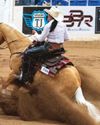
The Horse
LIFE TAKES US DOWN different paths, but I seem to be on just one, which is with the horse.
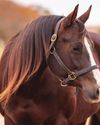
Decoding the Diseases Examined by AQHA's Six-Panel Test
The six-panel test is a diagnostic tool used to assess the genetic predispositions of horses. It's meant to discover if a horse has or is a carrier for certain hereditary diseases and traits.
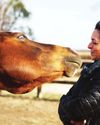
Love is Good
All horses are assured a hopeful, compassionate plan of care at This Old Horse, a program that helps not only horses but people, too.

HORSE PACKING 101
Take your trail riding to the next level with nature-filled adventures in the back or front country.
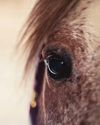
NEW HORSE; NEW PROBLEMS
Anew horse can bring excitement and energy to the barn, and even reinvigorate your passion. However, there are also a myriad of new problems that can come with a new horse, so learn how to introduce him properly to avoid these common issues.
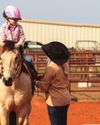
First-Timer Tips
Heading to a young rider's first event with their horse can be intimidating. Use these myths and truths to make it smoother sailing for yourself and your young rider.
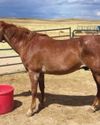
Re-Rescued: Aslan's Story
One special gelding learns about three different types of love during his rescue journey.
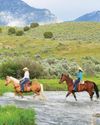
The Country's Hottest Horse Motels
Take your next trail-riding adventure to the next level by staying at one of these six horse motels across the United States.
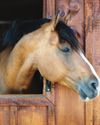
Outbreak! What We've Learned
Learn how disease outbreaks in recent years have changed the horse industry, and why it's so important to play your part when it comes to disease prevention efforts.
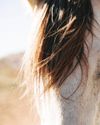
TRAINING THE SENSITIVE HORSE
Shift your mindset and grow your sensitive horse's pressure-handling skills to improve his confidence and your riding enjoyment.